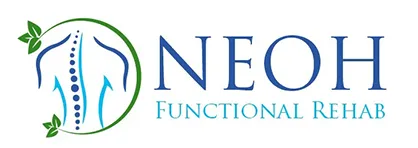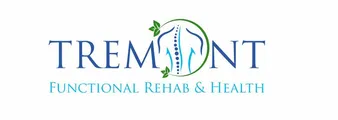Acupuncture can help treat a wide variety of health concerns and issues and at the offices of Tremont Functional Rehab & Health and NorthCoast Rehab in Cleveland, OH, acupuncture is one of our specialties!
During acupuncture, the provider places thin metallic needles into a patient's body at specific points to help open up the flow of energy and promote improved health. Acupuncture is thought to stimulate the nervous system and promote the body's natural ability to heal. It is used to treat and relieve chronic pain as well as acute illnesses and conditions.
How long does it take to feel the benefits of acupuncture?
The benefits of an acupuncture session can usually begin to be felt immediately. Depending on how long a patient has been receiving acupuncture and what they are using it for, the benefits can last for a few days or longer.
How often should acupuncture be performed?
The frequency of anyone's acupuncture appointments will be determined by the provider and the patient. Some people benefit from weekly acupuncture sessions, whereas others might be able to spread their sessions out further apart and can still feel the benefits of the treatment.
What should a patient do after acupuncture treatment?
There are a few tips and guidelines that patients can follow in order to get the most benefit from their acupuncture treatment including:
- Avoid drinking caffeine and alcohol - your body is trying to rid itself of toxins after acupuncture, so consuming alcohol or caffeine is putting toxins back in the body that it is trying to remove.
- Don't do any strenuous activities or exercises - even though a person may feel some increased energy after an acupuncture session, overdoing themselves physically can actually take away from some of the benefits of the session, so it's best to take it easy and do only light exercise or activity after a treatment.
- Allow time for rest and relaxation - try to avoid high stress situations after a session and take part in activities that are enjoyable and relaxing in order to prolong the benefits of the treatment.
What are the long term health benefits of acupuncture?
Patients who undergo acupuncture treatments can enjoy these long term benefits and more:
- Relief of chronic pain
- Lessening of asthma due to allergies
- Relief from nausea and vomiting
- Improved sleep and less insomnia
- Headache and migraine prevention and less severe pain
- Menstrual cramp relief
- Improved healing after surgery
If you are interested in learning more about acupuncture and how it can benefit your health and wellness in Cleveland, OH, contact the team at Tremont Functional Rehab & Health at (216) 284-3077 or NorthCoast Rehab at (216) 721-9010 today!
What does acupuncture feel like?
Acupuncture is done using hair-thin needles. Most people report feeling minimal pain as the needle is inserted. The needle is inserted to a point that produces a sensation of pressure or ache. Needles may be heated during the treatment or mild electric current may be applied to them. Some people report acupuncture makes them feel energized. Others say they feel relaxed.
Improper placement of the needle can cause pain during treatment. Needles must be sterilized to prevent infection. That is why it is important to seek treatment from a qualified acupuncture practitioner. The FDA regulates acupuncture needles just as it does other medical devices under good manufacturing practices and single-use standards of sterility.
Instead of needles, other forms of stimulation are sometimes used over the acupuncture points, including:
- Heat (moxibustion)
- Pressure (acupressure)
- Friction
- Suction (cupping)
- Impulses of electromagnetic energy
How does acupuncture affect the body?
Acupuncture points are believed to stimulate the central nervous system. This, in turn, releases chemicals into the muscles, spinal cord, and brain. These biochemical changes may stimulate the body's natural healing abilities and promote physical and emotional well-being.
National Institutes of Health (NIH) studies have shown that acupuncture is an effective treatment alone or in combination with conventional therapies to treat the following:
- Nausea caused by surgical anesthesia and cancer chemotherapy
- Dental pain after surgery
- Addiction
- Headaches
- Menstrual cramps
- Tennis elbow
- Fibromyalgia
- Myofascial pain
- Osteoarthritis
- Low back pain
- Carpal tunnel syndrome
- Asthma
It may also help with stroke rehabilitation.
What conditions may benefit from acupuncture?
Many Americans seek acupuncture treatment for relief of chronic pain, such as arthritis or low back pain. Acupuncture, however, has expanded uses in other parts of the world. Before considering acupuncture, talk to your doctor. Conditions that may benefit from acupuncture include the following:
| Digestive | Emotional |
|---|---|
| Gastritis Irritable bowel syndrome Hepatitis Hemorrhoids | Anxiety Depression Insomnia Nervousness Neurosis |
| Eye-Ear-Throat | Gynecological |
|---|---|
| Rhinitis Sinusitis Sore throat | Menstrual pain Infertility |
| Musculoskeletal | Neurological |
|---|---|
| Arthritis Back pain Muscle cramping Muscle pain and weakness Neck pain Sciatica | Headaches Migraines Neurogenic bladder dysfunction Parkinson's disease Postoperative pain Stroke |
| Respiratory | Miscellaneous |
|---|---|
| Allergic rhinitis Sinusitis Bronchitis | Irritable bladder Prostatitis Male infertility Some forms of impotence Addiction |
Considerations when choosing acupuncture
Because scientific studies have not fully explained how acupuncture works within the framework of Western medicine, acupuncture remains a source of controversy. It is important to take precautions when deciding about acupuncture.
- Discuss acupuncture with your doctor first. Acupuncture is not for everyone. Discuss all the treatments and medicines (dietary supplements, prescription and over-the-counter) you are taking. If you have a pacemaker, are at risk for infection, have chronic skin problems, are pregnant, or have breast or other implants, be sure to tell your doctor. Acupuncture may be risky to your health if you fail to mention these matters.
- Do not rely on a diagnosis of disease by an acupuncture practitioner. If you have received a diagnosis from a doctor, you may wish to ask him or her whether acupuncture might help.
- Choose a licensed acupuncture practitioner. Your own doctor may be a good resource for referrals to a licensed or certified practitioner. Friends and family members may also be good sources of referrals. You do not have to be a doctor to practice acupuncture or to become a certified acupuncturist. About 30 states have established training standards for certification in acupuncture, although not all states require acupuncturists to get a license to practice. Although not all certified acupuncturists are doctors, the American Academy of Medical Acupuncture can provide a referral list of doctors who practice acupuncture.
- Consider costs and insurance coverage. Before starting treatment, ask the acupuncturist about the number of treatments needed and how much the treatments will cost. Some insurers cover the cost of acupuncture while others do not. It is important to know before you start treatment whether acupuncture is covered by your insurance.


